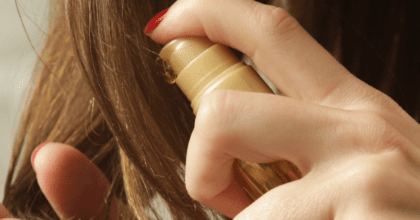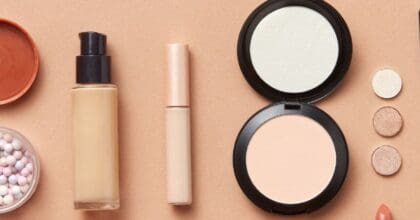A breath of fresh air as sales of mouthwash boom
While the economy may provide little to smile about, latest research from Mintel finds UK shoppers are brushing up on their oral hygiene routines as sales of oral hygiene products grew a refreshing 14% over the past five years to stand at £833 million in 2010. And it seems the nations mouths have never been cleaner, as Mintel finds sales of mouth wash have increased a spectacular 44% in the last five years alone, making mouthwash the fastest growing sector in the oral hygiene market.
Indeed, sales of mouthwash and rinses have surged in recent years. While, back in 2006 45% of Brits swilled back the stuff, today, this has risen to more than half the nation (55%) with sales increasing from £110 million in 2005 to a glistening £158 million in 2010. The bulk of these sales (84%) are made up of non-medicated washes (£132 million) while the remainder is made up of the medicated variety (£26 million).
Valued at £833 million in 2010, total sales of oral hygiene have grown by as much as 14% over the past five years from £729 million in 2005. Toothpaste accounts for the largest segment of the market (£353 million) – this is followed by toothbrushes (£237 million), mouthwash (£158 million), denture products (£42 million) and dental accessories ( £43 million). Disturbingly, today just 83% of Brits claim to brush their teeth at least once a day.
Vivienne Rudd, Senior European Beauty Analyst at Mintel comments:
“The market for mouthwash benefits from being easy and quick-to-use with instant results. Often, mouthwash is the first step adults take when extending their oral hygiene routine beyond basic cleaning with a toothbrush and toothpaste. By and large adults look to mouthwashes to kill germs and bacteria and eliminate or reduce bad breath. Manufacturers however, are looking to make mouthwashes a more essential part of the oral hygiene routine by developing sophisticated formulae with benefits including whitening and tartar control. “
Another key area of growth for the industry has been electric toothbrushes (including toothbrush heads and electric toothbrushes), which now accounts for almost 40% (38%) of toothbrush value sales. Valued at £90 million in 2010, sales of electric brushes have zoomed their way in to the nation’s bathroom with sales increasing 25% between 2005 (£72 million) and 2010. Meanwhile, sales of manual toothbrushes fell 4% over the same five year period from £153 million in 2005 to £147 million in 2010. Overall, total toothbrush sales increased 5% over the past five years to reach £237 million in 2010.
” electric brushes are gradually stealing share from the manual variety. While use of toothpaste is nearing 100% in the UK, growth opportunities remain for toothbrushes as some consumers continue to hold on to brushes longer than they should. Encouraging people to change their manual toothbrushes or power toothbrush heads more often could help to create significant growth in the coming years. Powered brushes are well placed to cater to those UK consumers whose most common oral health concern is stained and yellowing teeth. Powered brushes are often positioned as offering superior cleaning power, which is advantageous given that uptake of professional whitening treatments is relatively low. “Vivienne continues.
Finally the research shows how the nation is not only using dental regimens as a firewall against cavities, plaque and bad breath, but as a necessary step to achieving a Hollywood-style smile. Indeed, according to Mintel’s research, worries about yellowing or stained teeth prey on the minds of four in ten (40%) adults, making cosmetic issues the most prevalent oral health concern. Meanwhile, less than a third of Brits worry about cavities. The nation’s top five teeth concerns are 1. yellow satined teeth (40%), 2. sensitive teeth (38%), 3. plaque build up (34%), 4. cavities and caries (30%) and 5. gum problems (30%). Professional whitening treatments are on the agenda for 10% of women (whereas only 4% of men have had or plan to undergo such procedures).
“With people retiring later and competing with younger colleagues for top jobs, looking good for longer will become ever more vital. “Vivienne concludes.
-
Mintel StoreGet smart fast with our exclusive market research reports, delivering the latest data, innovation, trends and strategic recommendations....View reports
-
Mintel LeapMintel Leap is a revolutionary new AI-powered platform that will transform your research process....Book a demo







































